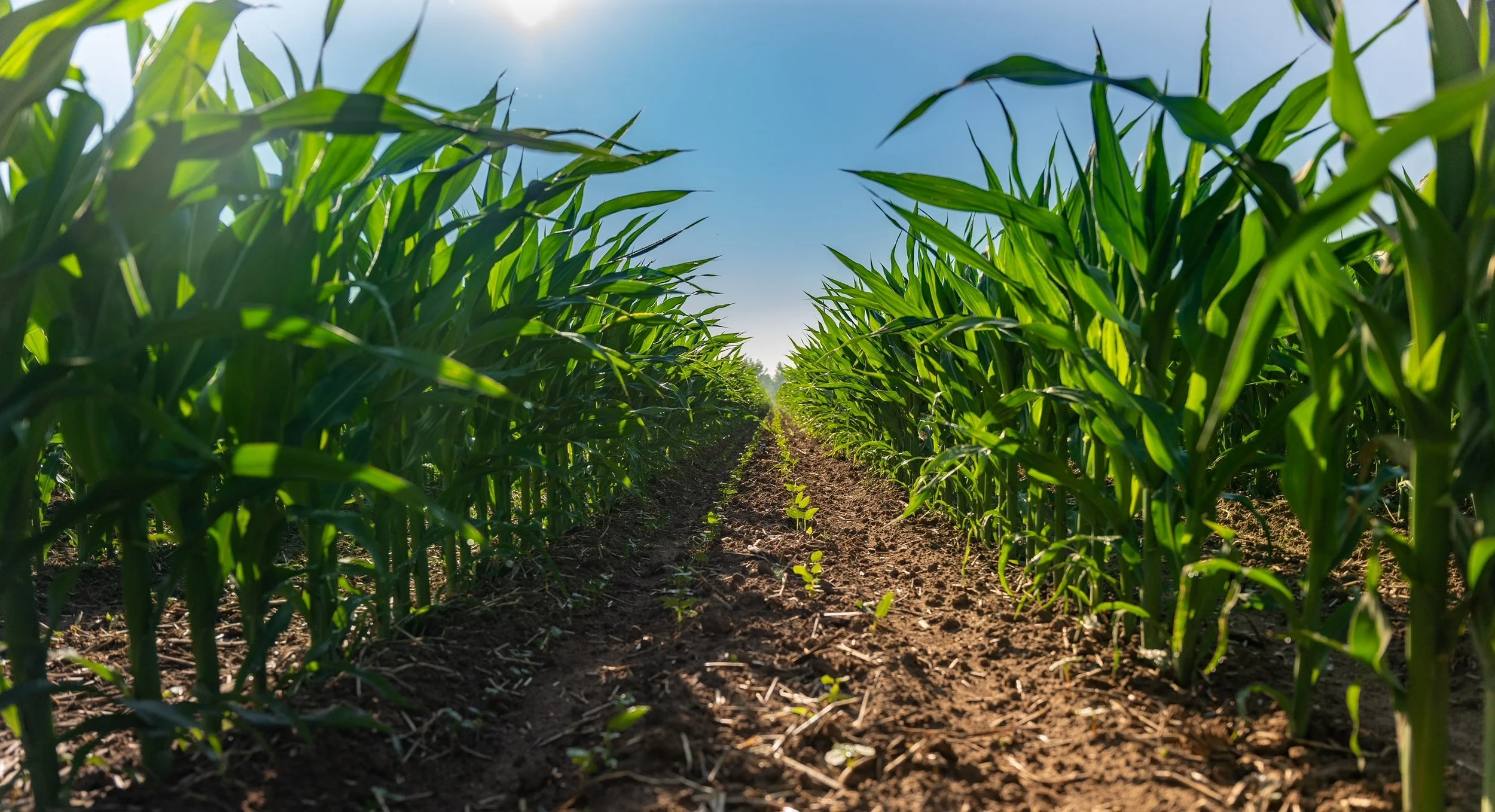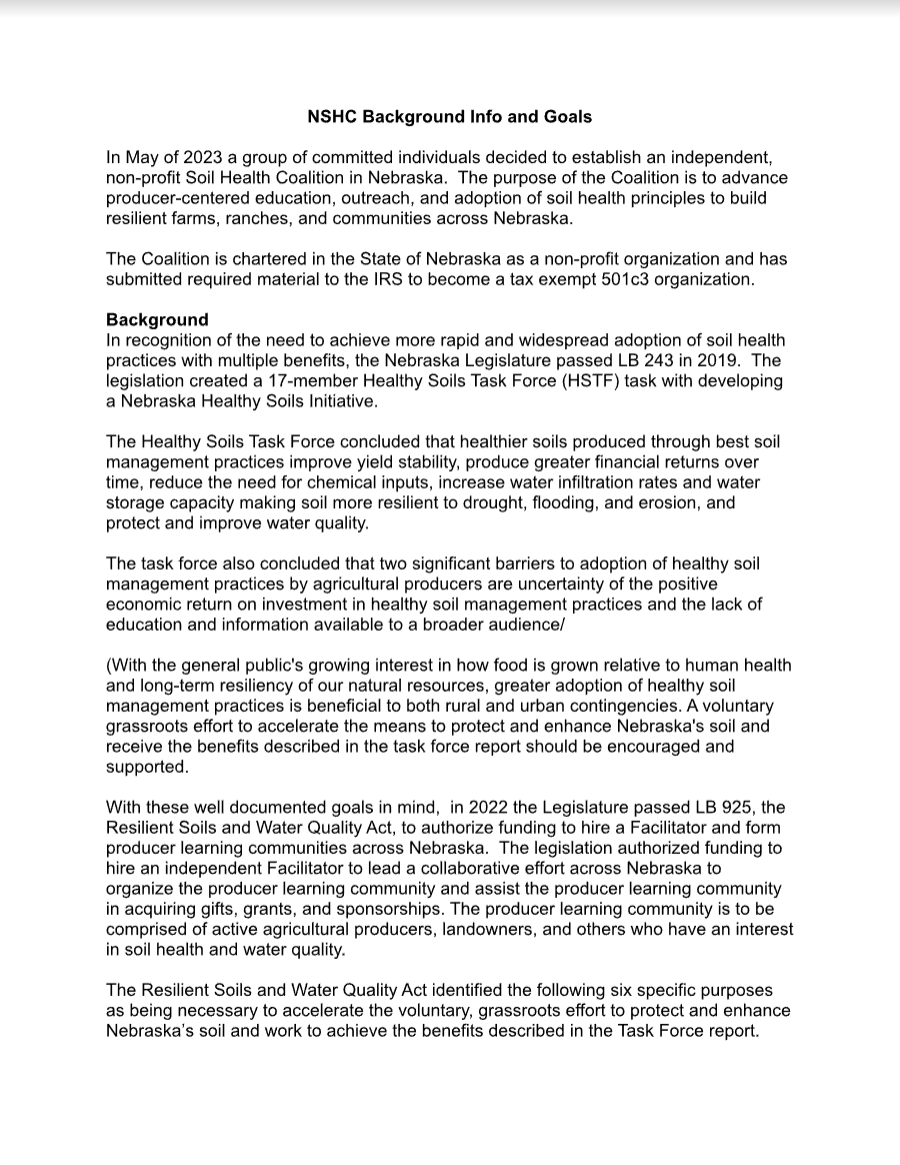-
To advance producer-centered education, outreach, and adoption of soil health principles to build resilient farms, ranches, and communities across Nebraska.
-
Promote the adoption of soil health systems.
-
A collaborative effort to increase sustainable agricultural production and thriving rural
communities. -

We will accomplish our purpose through these action steps
A. Nurturing a Producer-led Learning Community of on-farm research/demonstration, education, mentorship, and support among Nebraska’s farmers, livestock producers, ranchers, and landowners;
B. Promoting and strengthening cooperation among producers seeking to improve soil health, water quality, other ecosystem services, and profitability of agricultural lands with specific sub-state regional context;
C. Building on the critical livestock component of enhanced soil health to further Nebraska’s rich grasslands endowment and its vibrant livestock industry;
D. Advocating, educating and being a conduit between members and available funding entities to enhance the adoption of soil health practices;
E. Strengthening coordination, collaboration and communication among producers, other individuals, agribusiness, and organizations seeking to improve soil health and long-term soil resilience;
F. Building a shared vision across all Nebraskans for increasing the economic, environmental, and societal resilience of Nebraska’s agricultural land resources;
G. Utilizing and expanding up-to-date science-based information pertaining to soil health principles and implementation relevant at the local level;
H. Enhancing agricultural landowners’ and farm managers’ understanding of and willingness to embrace with their producer operators soil health practices for greater profitability based on ecologically sound principles;
I. Advocating for sound policy decisions through the lens of resilient soils while always promoting voluntary actions and respect for property rights; and
J. Building public awareness of and appreciation for the multiple ecosystem services provided by enhancing soil resilience of the State’s agricultural lands.




